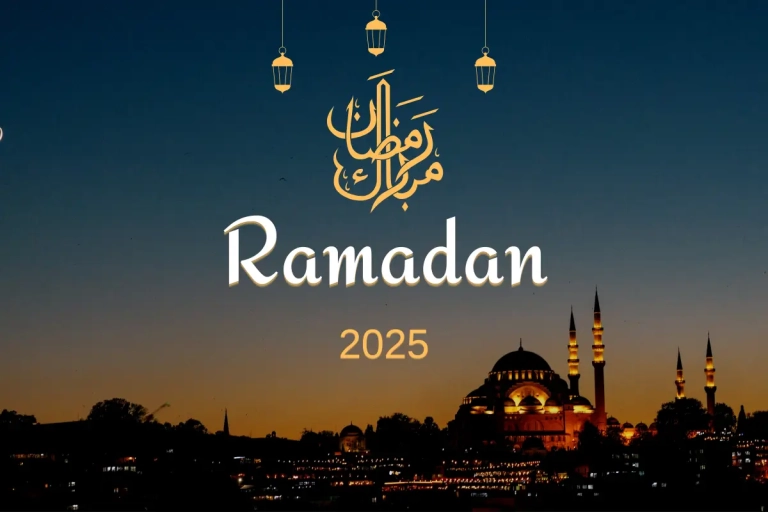Ramadan: More Than Just Hunger and Thirst. By Falilat Oreoluwa Dikko

Ramadan: More Than Just Hunger and Thirst
Ramadan is approaching, and as the crescent moon prepares to take its place in the night sky, millions of Muslims around the world are also preparing their hearts and minds for the sacred month. From the bustling streets of Lagos to the quiet alleys of Medina, from the skyscrapers of London to the villages of Kano, the anticipation is the same. It is a season of fasting, prayer, and self-discipline, but more importantly, it is a time for reflection. Yet, how many of us truly understand the essence of Ramadan beyond the daily abstinence from food and water?
Fasting is one of the five pillars of Islam, commanded by Allah in the Qur’an: “O you who have believed, decreed upon you is fasting as it was decreed upon those before you that you may become righteous” (Qur’an 2:183). It is not just a ritual but a spiritual cleansing, a means of drawing closer to Allah. However, in a society where distractions are plenty and temptations are everywhere, many have reduced Ramadan to a mere hunger strike, avoiding food while indulging in behaviours that contradict the very essence of the fast.
The Prophet Muhammad (peace be upon him) warned about this when he said, “Many a fasting person gets nothing from his fast except hunger and thirst” (Ibn Majah). What does this mean? It means that if we refrain from eating but continue to backbite, lie, cheat, or harm others, then we have missed the whole purpose of fasting.

Imagine a man who wakes up for Sahur, performs his Fajr prayer, then goes back to bed only to wake up and spend the rest of the day gossiping about his neighbours. Or a woman who covers her hair and prays regularly but is always eager to discuss the latest scandal in town. What about the young man who fasts all day yet spends his nights watching inappropriate content on his phone? Are these the people Allah describes as “that you may become righteous”?
Let us look at society today. The streets of Lagos, Abuja, and Port Harcourt are filled with people who claim to be fasting, yet their businesses thrive on deception. A trader in Balogun Market will say, “Wallahi, I bought it at N5,000,” when in reality, the cost price was N3,000. A politician will hold a grand Ramadan lecture, donating millions in charity, yet behind closed doors, he is embezzling public funds meant for roads and hospitals. What then is the essence of his fasting?
Even within homes, we see contradictions. Some people will not miss a single day of fasting, yet they are quick to raise their voices at their spouses and children. A man will wake his family for Tahajjud yet refuse to provide for them properly. A woman will spend hours reciting the Qur’an yet refuse to forgive a sister over a petty misunderstanding. Where, then, is the spiritual growth that Ramadan should bring?

And then, there are those who suddenly develop “ulcer” as soon as Ramadan begins. They will confidently say, “Ah, doctor said I must not fast,” but once Eid arrives, you will see them at owambe parties, eating pounded yam and egusi with the strength of an Olympic athlete. While Islam permits genuine exemptions from fasting, the Prophet (peace be upon him) also said, “Actions are judged by intentions” (Bukhari & Muslim). If a person lies to avoid fasting, does he think Allah does not see his heart?
There is also the issue of excessive focus on food. Ramadan should be a time of moderation, yet for many, it has become the season of extravagant meals. Some people will spend hours in the kitchen, preparing a feast that could feed an entire village, only for half of the food to be wasted. Others will go from house to house, not for Islamic brotherhood but to “taste” everyone’s cooking. There are even those who will stand by their neighbour’s window, inhaling the aroma of fried chicken and ogbono soup, as if the smell alone will satisfy their hunger.
But Ramadan is not about food; it is about the soul. It is about purifying our hearts, strengthening our relationship with Allah, and becoming better human beings. Umar ibn Al-Khattab, the great companion of the Prophet, once said, “Hold yourself accountable before you are held accountable.” This is what Ramadan teaches us, to reflect on our actions, seek forgiveness, and strive for self-improvement.
In the end, the true success of Ramadan is not measured by how many days we fasted, how many plates of iftar we consumed, or how many Taraweeh prayers we attended. It is measured by how much we changed for the better. Have we become kinder? Have we controlled our tongues? Have we strengthened our faith? Have we treated people more justly? If, after Ramadan, we return to the same bad habits, then we have wasted a golden opportunity.
As the month approaches, let us all make a sincere effort to fast, not just with our stomachs, but with our hearts, minds, and actions. Ramadan is a gift, a chance to transform ourselves. May we not be among those who let it slip away without reaping its true benefits.
Falilat Oreoluwa Dikko, author and public affairs analyst writes from Lagos Nigeria 28th February 2025




